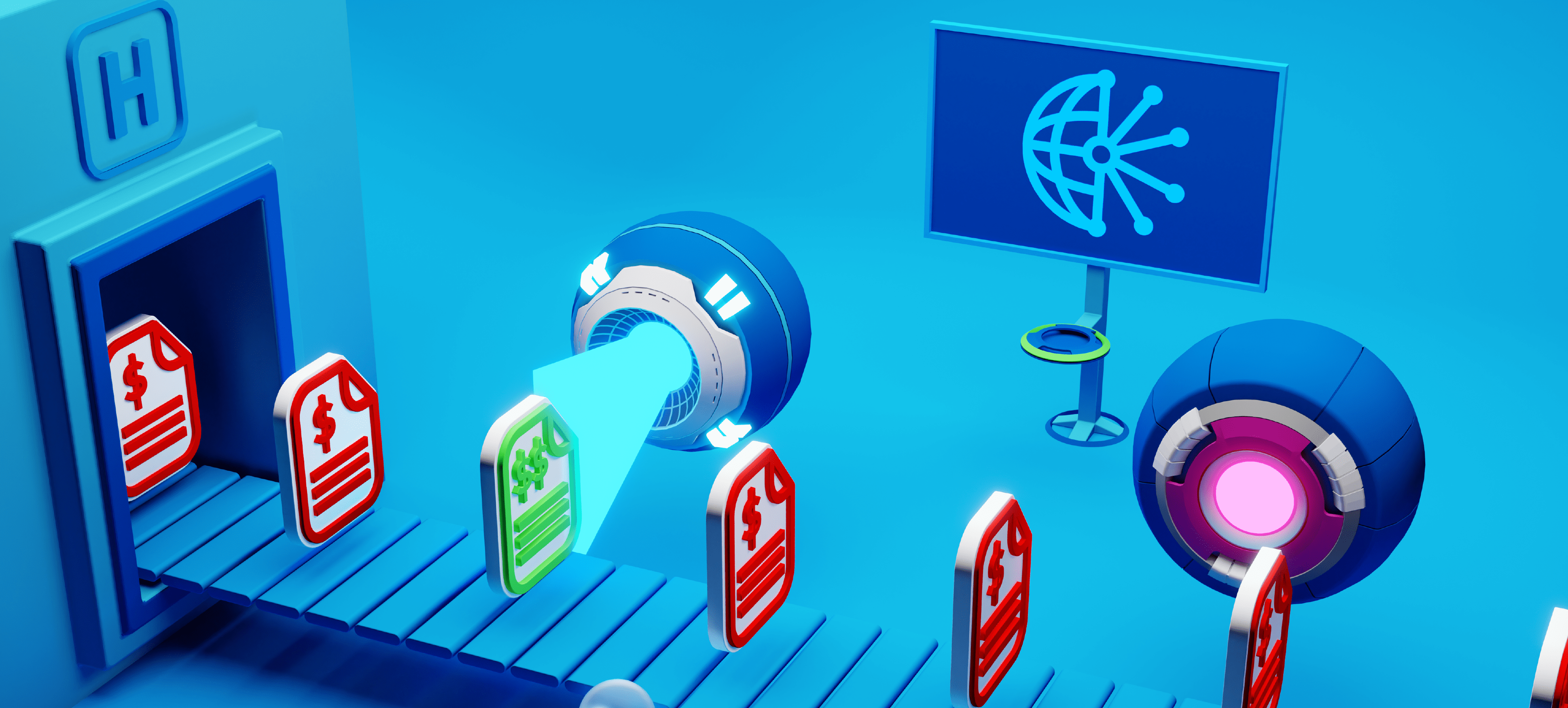Tag: ai advantage denial triage

Artificial intelligence (AI) is changing the healthcare industry. From disease detection to chatbots, AI is having a significant impact on the way healthcare providers operate and deliver care to patients. Additionally, AI is transforming the revenue cycle management process by automating tasks, such as claim denials management. By leveraging AI tools, healthcare providers can reduce the time and resources required for manual claims processing, ensuring that claims are paid faster and with greater accuracy. As claim denials continue to rise by 10-15%, healthcare organizations continue to grapple with the adverse effects on their finances. That's why Experian Health created AI Advantage™ – an innovative solution that helps providers with better claim denial management. The first component, AI Advantage – Predictive Denials, proactively identifies claims that are at high risk of being denied, so providers can edit the claim prior to submission. The second component, AI Advantage – Denial Triage, steps in after claims have been denied to identify those with the highest potential for reimbursement. Schneck Medical Center is one example of a healthcare organization that has seen significant results from implementing AI Advantage. After just six months, they successfully reduced denials by an average of 4.6% each month. Corrections that would previously have taken their organization 12 to 15 minutes to rework could now be processed in under 5 minutes. With AI Advantage, healthcare organizations can improve their claim denials management processes, increase efficiency, and reduce administrative costs. The solution's ability to prevent and reduce claim denials in real time can help healthcare providers maximize revenue while delivering high-quality patient care. As healthcare organizations continue to face mounting financial pressures and staffing shortages, AI-powered solutions will be increasingly important in helping them navigate these challenges and achieve long-term success. Learn more about how healthcare organizations can begin their journey towards improving efficiency and reducing claim denials with AI Advantage.

“The challenge we sought to overcome by leveraging AI Advantage at our organization was just gaining more insight into how denials originate and what actions we can take to prevent those from happening.” — Skylar Earley, Director of Patient Financial Services, Schneck Medical Center Challenge Starting as a 17-bed hospital more than 100 years ago, Schneck Medical Center now serves four counties in Indiana, with a staff of more than 1,000 employees, 125 volunteers and nearly 200 physicians. The organization’s vision is to deliver excellence, lead transformation and advance health, underpinned by a patient-first philosophy. For the Patient Financial Services team at Schneck Medical Center, reworking denied healthcare claims was often time-consuming and inefficient. Billers tended to prioritize high-value claims, without knowing the probability of reimbursement. They sought a denial management solution that would reduce the risk of denied claims and minimize their impact on the revenue cycle. Solution Schneck worked with Experian Health to test two new denial management solutions that use artificial intelligence (AI) to reduce the likelihood of denials and prioritize rework to maximize reimbursement. The first, AI Advantage™ – Predictive Denials, uses AI to predict claims that have a high chance of being denied, so they can be corrected before the claim is sent to the payer. If a claim review exceeds the suggested threshold for denial probability, an alert is triggered, and the flagged claim is automatically routed to the appropriate biller. The biller investigates the alert to understand what changes are needed. This might include checking insurance eligibility, reviewing coding errors or reviewing authorization status. Once the alert is resolved, the claim can be automatically resubmitted. The second solution, AI Advantage™ – Denial Triage, prioritizes denials based on the potential for reimbursement so staff can focus recovery efforts on the right claims. The triage process starts with identifying between 2 and 10 denial segmentation categories based on likelihood of reimbursement. Schneck chose to identify 5 categories to start. Individual remits are evaluated and automatically assigned to the appropriate category, so they can be routed to the correct specialist. The tools use historical claims data and a continuously learning AI model to detect patterns in payer decisions. Staff can customize denial probability thresholds and segmentation criteria to ensure claims are routed to the correct specialist. The solutions integrate seamlessly with Schneck’s existing claims management system, ClaimSource®, and other health information workflows. Outcome After just six months, AI Advantage helped Schneck reduce denials by an average of 4.6% each month. Corrections that would previously have taken 12 to 15 minutes to rework can now be processed in under 5 minutes. Staff report that the thresholds determined by AI Advantage – Predictive Denials are highly accurate, leading to better decision-making when reworking claims prior to submission. And with AI Advantage – Denials Triage, staff feel confident that they’re focusing their attention on the right segments, rather than wasting time on high-value claims that are unlikely to be reimbursed. Skylar Earley says, “Before, we had no insight into whether we were performing value-added work when we followed up and worked denials. Now we see those percentages.” Learn more about how AI Advantage generates insights to help healthcare organizations reduce time spent working denials and maximize reimbursement.